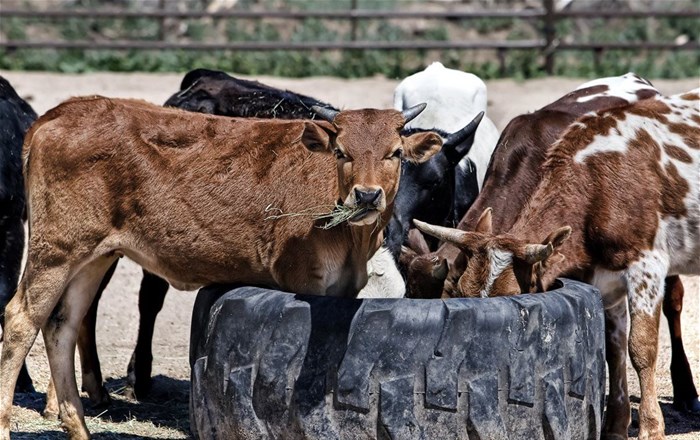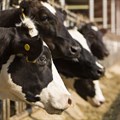The South African cattle farmer faced several headwinds in 2020, which has created large-scale uncertainty set to continue well into 2021. According to Dr Brent Sirrals, technical veterinarian at MSD Animal Health: "To mitigate against these pressures, cattle farmers must invest in the health of their herds now, the value of which will be transferred back to farmers at various stages of the production cycle. "
Sirrals spoke at the recent launch of the Farm to Fork initiative – a programme led by Beefmaster Group, in partnership with MSD Animal Health and AllFlex Livestock Intelligence.
The initiative focuses on the "holy trinity" of cattle herd health including animal health, traceability and biosecurity and aims to equip farmers to make viable yet simple changes at farm level, which will improve the overall health of the animal, and materialise into dividends for the farmer. The also initiative delivers value to all stakeholders in the cattle and beef industries, including veterinarians, cattle producers, feedlots and consumers.
"The year 2020 has been debilitating for South Africa’s beef industry, not only did farmers deal with disruptions to the supply chain as a result of the Covid-19 pandemic, but many faced added pressures such as outbreaks of foot-and-mouth disease (FMD), a banning on auctions, a devastatingly long drought, and swings in the price and demand of beef," said Sirrals.
"To mitigate against such pressures and to ensure that cattle farming operations are sustainable, farmers must keep their herds as healthy as possible. This will allow them to safeguard the profitability of their operation, especially during difficult times."
Traditionally farmers did not invest as much into the health of an animal intended to be sold to the market whether to feedlots or via auctions, but Sirrals explained that the future sustainability of South Africa’s beef production depends on the entire industry being able to access new markets.
SA’s livestock farming industry is estimated to be worth R81bn. As a whole, the agricultural industry sector contributes about 3% to GDP and is responsible for close to 900,000 jobs.
Prioritising herd health
"We need to think about the value for the entire supply chain. Consumers want to know where their product comes from, so the beef producers need a traceable product, while the vet, as the custodian of the animal’s health, needs to ensure it remains free from disease, and the cattle farmer wants a fair price for his product. The Farm to Fork initiative helps to enhance the value and potential of the entire supply chain by improving the relationships between all stakeholders."
He added that farmers need to be challenged to improve their ways of raising cattle and that reducing the risk of infectious diseases should therefore be a serious consideration at every cattle farm.
"Optimising herd health by improving biosecurity and having adequate traceability structures at farm level, are the key ways to overcoming the current barriers preventing our industry from moving forward and protecting the long-term viability of the SA cattle farming industry,” he said.
Sirrals explained that treatment for animals should they become affected by an infectious disease – such as common respiratory diseases – is more expensive compared to implementing a prevention strategy. This includes the implementation of a vaccination programme and the safe use of antibiotics.
"Furthermore, data from a proper identification and traceability system can be fed from the feedlot to the farmer and be used by the farmer to improve any component of his farming operation, such as reproductive herd health, thereby adding even more value to the farmer’s enterprise," explained Sirrals.
Protecting SA's livestock industry
The Farm to Fork initiative dovetails government’s aim to prioritise biosecurity and traceability in the livestock industry, which was made apparent earlier this year when the Department of Agriculture, Land Reform and Rural Development announced plans to put more stringent measures and protocols to curb the spread of infectious diseases such as Foot-and-Mouth Disease (FMD).
Beefmaster Group has since the outbreak of FMD, called for greater industry cooperation from all players in protecting South Africa’s livestock industry by ensuring a healthier herd, a key component of the Farm to Fork initiative.
"We need to take responsibility and accountability as an industry collective to prioritise the health of the herd. Measures such as these will improve the bio-security of the country and the health of the animal economy, which will in turn ensure that the meat industry remains profitable, a stable source of revenue, and continues to provide job security," concluded Roelie van Reenen, supply chain executive at Beefmaster Group.
Farmers who want to learn more about the Farm to Fork initiative can speak to their local veterinarian to find out if they are participating. Alternatively, they may contact Brent Sirrals at moc.kcrem@slarris.tnerb for more information.
































































